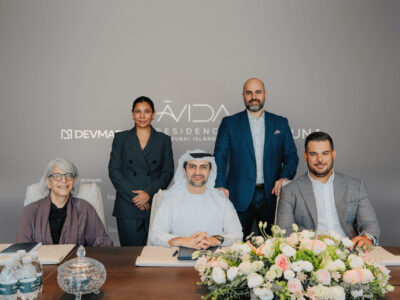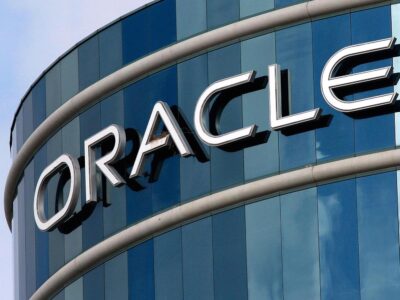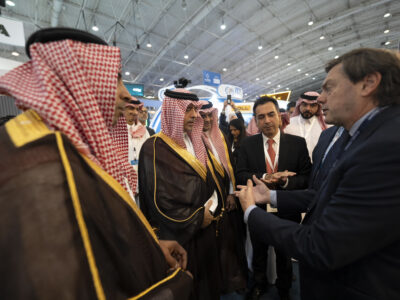Governments across the Middle East have long recognised the pivotal role of cutting-edge technologies in helping them diversify their economies, while also empowering them to meet their national sustainability targets.
One such technology that has evolved to become a game-changer in this regard has been Artificial Intelligence (AI). From monitoring environmental conditions, reducing waste to landfills, and optimising resource utilisation, to enabling remote work arrangements, enhancing agricultural practices, and powering the smart cities of the future, AI is playing a pivotal role when it comes to climate action, said Ihab Foudeh, General Manager, Microsoft Middle East. It is this intersection of technology and environmental impact that the global technology giant is highlighting during its participation at COP28.
“Climate change is the defining issue of our generation, and addressing it requires swift, collective action and technical innovation. Already, temperatures in the Middle East are on average rising faster than across the rest of the world, and cities in the region could become largely uninhabitable by 2100,” he said.
“At Microsoft, we believe that technologies like AI, cloud computing, and the Internet of Things (IoT) can be leveraged to foster economic diversification, while simultaneously addressing environmental concerns. We are already seeing encouraging signs of this in the Middle East, most notably in countries like the UAE, which are embracing technological innovation to increase the use of alternative energies and pushing hard to diversify their energy mix.”
Etihad Airways, for example, is working closely with Microsoft to use advanced analytics and AI to measure and benchmark its environmental footprint and implement carbon efficiency savings across its business operations. Hudhud, an Arabic AI Farmer Virtual Assistant App launched by the Egyptian government and powered by Microsoft’s AI technologies, is facilitating real-time guidance and data on agricultural best practices to more than 50 million farmers, covering 70 percent of farming land across the country.
Microsoft’s AI solutions were also instrumental in empowering the Dubai Electricity and Water Authority and BEEAH Group to build two of the smartest and most sustainable buildings in the region, setting a new benchmark for future workspaces.
Microsoft’s investments into various initiatives such as its AI for Earth, AI for Humanitarian Action, and AI for Cultural Heritage programs are also ensuring that AI is tackling key issues such as food security and energy scarcity, while building climate resilience in communities around the world.
Another segment where Foudeh sees AI as playing a crucial role is in the development of future sustainability talent. Specialised sustainability roles are rapidly emerging globally, and existing job descriptions are evolving to include sustainability subject matter. Employees are now expected to have thorough and specialised knowledge in sustainability, specifically in areas such as carbon accounting, carbon removal, and ecosystem services valuation, he noted.
“AI can be leveraged to create a future sustainability workforce in several ways, such as providing targeted training and assistance to workers who need to reskill or upskill for the transition to a low-carbon economy. AI can help identify the skills gaps and learning needs of workers and offer personalised and adaptive learning content and feedback. The technology can also be leveraged to amplify the efforts of sustainability professionals by automating routine tasks, enhancing decision making, and enabling collaboration across disciplines and sectors,” he said.
Brand View allows our business partners to share content with Arabian Business readers.
The content is supplied by Arabian Business Brand View Partners.








